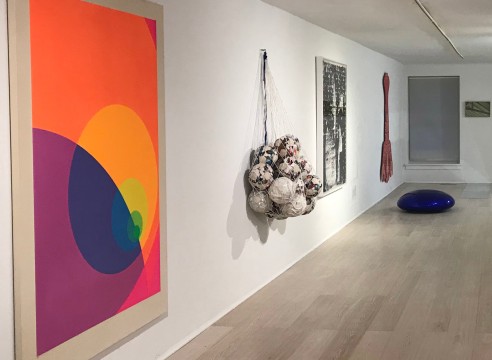
Andy Warhol was born on August 6, 1928, in Pittsburgh, Pennsylvania. He was a successful magazine and ad illustrator who became a leading artist of the 1960s Pop art movements. He ventured into a wide variety of art forms, including performance art, filmmaking, video installations and writing, and controversially blurred the lines between fine art and mainstream aesthetics.
In 1964, Warhol opened his own art studio, a large silver-painted warehouse known simply as "The Factory." The Factory quickly became one of New York City's premier cultural hotspots, a scene of lavish parties attended by the city's wealthiest socialites and celebrities, including musician Lou Reed, who paid tribute to the hustlers and transvestites he'd met at The Factory with his hit song "Walk on the Wild Side"—the verses of which contain descriptions of individuals who were fixtures at the legendary studio/warehouse in the '60s, including Holly Woodlawn, Candy Darling, "Little Joe" Dallesandro, "Sugar Plum Fairy" Joe Campbell and Jackie Curtis.
In the 1970s, Warhol continued to explore other forms of media. He published such books as The Philosophy of Andy Warhol (From A to B and Back Again) and Exposures. Warhol also experimented extensively with video art, producing more than 60 films during his career. Some of his most famous films include Sleep, which depicts poet John Giorno sleeping for six hours, and Eat, which shows a man eating a mushroom for 45 minutes.
Warhol also worked in sculpture and photography, and in the 1980s, he moved into television, hosting Andy Warhol's TV and Andy Warhol's Fifteen Minutes on MTV.
Warhol's life and work simultaneously satirized and celebrated materiality and celebrity. On the one hand, his paintings of distorted brand images and celebrity faces could be read as a critique of what he viewed as a culture obsessed with money and celebrity. On the other hand, Warhol's focus on consumer goods and pop-culture icons, as well as his own taste for money and fame, suggest a life in celebration of the very aspects of American culture that his work criticized. Warhol spoke to this apparent contradiction between his life and work in his book The Philosophy of Andy Warhol, writing that "making money is art and working is art, and good business is the best art."
Warhol died on February 22, 1987, at the age of 58.